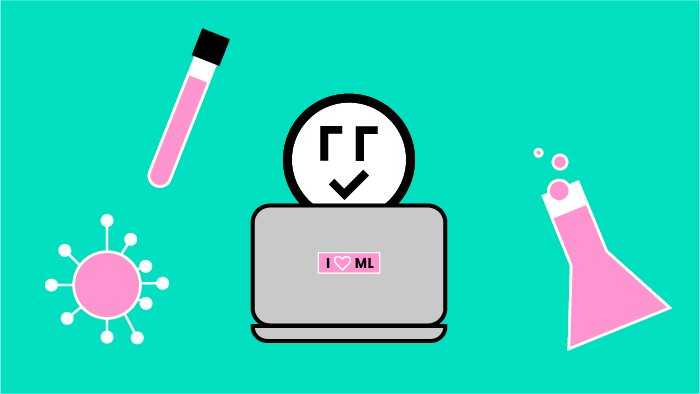
See Kubeflow in Action
OpenVaccine: COVID-19 mRNA Vaccine Degradation Prediction
Develop models and design rules for RNA degradation
Use Case: Biotechnology, Pharmaceuticals
Sponsors: Stanford University
Technology: Kubeflow, Kubernetes, Docker, Python, Tensorflow
Sponsors: Stanford University
Technology: Kubeflow, Kubernetes, Docker, Python, Tensorflow
Developing Kubeflow Pipelines: Kaggle’s Digit Recognizer Competition
Learn computer vision fundamentals with the famous MNIST data.
Use Case: Prediction
Sponsors: MNIST
Technology: Kubeflow, Kubernetes, Docker, Python, Tensorflow
Sponsors: MNIST
Technology: Kubeflow, Kubernetes, Docker, Python, Tensorflow
Explore use cases where machine learning is being used to help improve and solve healthcare organizations needs:
Patients’ demands and capacity constraints are forcing provider healthcare organizations to adopt innovative methods with the help of ML and AI. The use of ML and AI have enabled healthcare providers to improve their operational capabilities and provide better solutions and delivery of services in a timely manner while operating in a highly regulated environment. Use of ML and AI has also helped payer organizations in the healthcare industry to improve service levels and improve the overall quality of engagement at scale by having efficiencies in collection, processing and customer service.

Medical Imaging
Medical imaging is one of the techniques used to diagnose ailments. Healthcare professionals can use image processing ML models to predict and diagnose key ailments that might be missed by a human. Models can take into account historical diagnosis, academic data and a variety of datasets to identify patterns enabling healthcare professionals to process diagnosis at higher speed and avoid missed diagnosis or potential errors.

Drug Discovery
Pharma companies now rely on ML models that take into account a variety of datasets, insights from past and present clinical trials and observations from existing drugs. This helps to identify new drug formulations and uses, in addition to repurpose and reposition drug formulation. This enables companies to speed up formulation and clinical research to come up with solutions that produce efficient clinical trials while lowering costs to develop new medicines.

Read Unstructured Data
Medical data is often stored in an unstructured way at a variety of different sources. ML can help to efficiently analyze huge unstructured data in a standardized way at scale with accuracy and provide recommendations that healthcare practitioners can rely on to make faster decisions on treatment plans.

Early Detections
By analyzing ongoing medical record data and other data points that affect the health of an individual, AI models can help to identify and provide treatment plans to patients at an early stage. This helps to reduce the impact of acute urgent care needed at the later stage. Early detection and treatments also help with mortality rates and reduces the overall costs for both payers and providers.

Diagnostics and Treatment
Training ML models have the capability of reading patient records and utilizing image recognition as well as voice patterns to analyze incoming patients. This can help healthcare professionals with predictive diagnostics and also allow healthcare providers to be prepared in terms of receiving patients prior to emergency arrivals thereby reducing the time it takes to prepare facilities to provide adequate case post diagnostics.

Genetic Medicine Development
Genetic medicine brings with it the promise of solving rare diseases. Use of AI and ML allows scientists to predict these diseases and build adequate genetic alterations with relevant compounds, keeping in mind biomarkers from clinical trials.

Predictive Forecasts
ML can help predict volume at healthcare facilities and labor needs by taking into account patterns and timing. This helps healthcare facilities to better allocate professionals in departments based on optimized schedules to better serve patients. In addition, facilities can be adequately prepared in advance with supplies thereby easing congestions at the facilities.

Payer Evaluations
Payers can use ML models to analyze huge amounts of transactional data at scale while predicting fraudulent behavior, preventing these transactions from flowing through. In addition, the use of medical data records can help payer organizations with risk underwriting and premium pricing while ensuring fairness is maintained regardless of race, ethnicity or gender.
Schedule a Workshop for your Team
Check out the growing list of Healthcare companies using Kubeflow in production

Healthcare

Pharmaceuticals

Technology & Services

Healthcare
Halodoc is a health-tech platform that connects patients with doctors, insurance, labs, and pharmacies in one simple mobile application.

